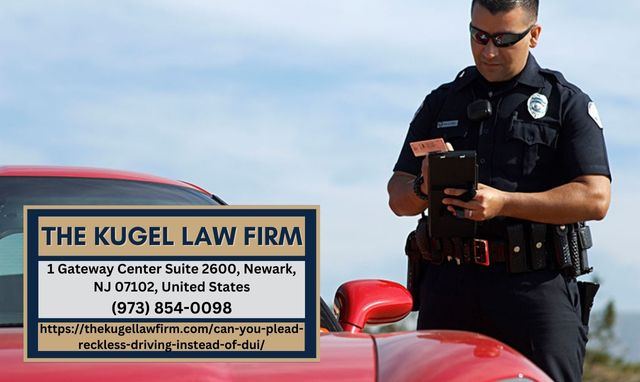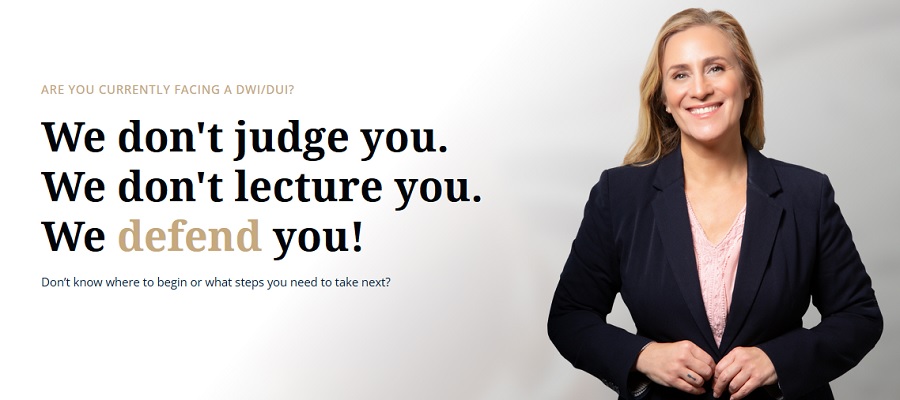Drunk driving and reckless driving charges often come hand in hand. In many cases, drivers get pulled over when police officers believe they’re seeing reckless behavior. A traffic stop can then lead to a field sobriety or breathalyzer test, which can lead to a DUI charge. In some cases, you may be charged with both DUI and reckless driving. And while both are serious offenses in New Jersey, DUI has a set of penalties and fines that are different with reckless driving.
Not all drunk driving counts as reckless driving. You may get charged with a DUI at a traffic checkpoint – not because anyone witnessed you driving recklessly. The opposite is also true: you could be found guilty of reckless driving even if you’re sober. What’s the best way to navigate these charges? Usually, reckless driving tends to have less severe penalties and fines compared to a drunk driving offense. Some states treat reckless driving as a “less serious” version of a DUI, although both come with significant consequences, including the possibility of criminal charges that stay on your record for years.
The best course of action when facing a DUI or reckless driving charge is to talk to an experienced New Jersey DUI lawyer as soon as possible. The outcome of your case will depend on the unique facts of your situation. An attorney can recommend a strategy once they analyze the details of your case and take stock of the state’s evidence against you. Contact The Kugel Law Firm at (973) 854-0098 for a confidential consultation and start building a strategic defense for your situation today.

What’s the Difference Between Reckless Driving and DUI?
In order to be charged with a DUI or DWI in New Jersey, you must be under the influence of alcohol or drugs (illegal or prescription). Evidence to prove intoxication usually involves results from a breathalyzer test, field sobriety test, or blood test.
Meanwhile, you can drive recklessly even if you’re not under the influence of anything.
In New Jersey, reckless driving involves endangering people or property with willful or wanton disregard for the rights or safety of others. You could be charged with reckless driving if you knew you were driving dangerously and continued anyway.
Even sober drivers can get pulled over for reckless driving, which could look like:
- Driving the wrong way down a one-way street
- Ignoring or speeding through stop signs or traffic lights
- Excessive speeding, especially in construction zones
- Tailgating, weaving through traffic, or racing other drivers
- Operating a dangerous vehicle or improperly secured cargo
- Road rage or using a motor vehicle as a dangerous weapon
The consequences for reckless driving vary based on the severity of your case and whether this is your first offense. You could face civil fines or penalties (such as getting your license suspended or revoked) or a criminal record for a misdemeanor or felony crime.
For example, speeding 5-10 MPH over the speed limit may simply get you a traffic ticket and civil fine. But speeding over 100 MPH or double the speed limit could rise to the level of a misdemeanor crime of reckless driving, with jail time. Engaging in this kind of reckless driving while under the influence of drugs or alcohol could elevate the criminal charges to a felony, where you face both reckless driving and DUI charges.
| Reckless Driving | DUI/DWI | |
|---|---|---|
| Definition | Endangering people or property with willful or wanton disregard for the rights or safety of others | Driving under the influence of alcohol or drugs |
| Intoxication | Not required | Required |
| Consequences | Civil fines or penalties, criminal record for misdemeanor or felony offense | Civil fines or penalties, criminal record for misdemeanor or felony offense, license suspension or revocation |
Can You Plead Reckless Driving Instead of DUI?
In New Jersey there are statutes that limit the types of offers that prosecutors are allowed to make in order to attempt to resolve a case. This means that a plea to an alternative traffic offense does not come easy.
That does not mean that alternative plea agreements are never reached but they cannot be based on a “plea bargain” and instead must be based on the state’s inability to prove the case beyond a reasonable doubt. This is why it is so important to have a DWI lawyer on your side who can point out to the prosecutor the weaknesses in their case and argue why your matter might require such a diversion.
Reckless Driving vs. DUI in New Jersey
Drunk driving and reckless driving are often related but distinct charges in New Jersey. A driver may be pulled over for exhibiting reckless behavior, which can then lead to a field sobriety or breathalyzer test and a subsequent DUI charge. Not all drunk driving counts as reckless driving, and conversely, reckless driving can occur even when a driver is sober. Penalties and fines for reckless driving are generally less severe than those for a DUI, but both charges come with significant consequences, including the possibility of a criminal record.
According to N.J.S.A 39:4-96, reckless driving in New Jersey involves endangering people or property with willful or wanton disregard for the rights or safety of others. It disregards safe driving rules regardless of the potential for harm. Examples of reckless driving behaviors include driving the wrong way down a one-way street, excessive speeding, tailgating, and road rage. Consequences for reckless driving depend on the severity of the case and the driver’s history, ranging from civil fines and penalties to a misdemeanor or felony criminal record. Those convicted may be subject to fines, license suspension, mandatory driving courses, and, in extreme cases, imprisonment.
Conversely, driving under the influence (DUI), as defined under N.J.S.A. § 39:4-50, involves driving with a blood alcohol concentration of 0.08% or more for individuals aged 21 and above, or while influenced by a Schedule 1 drug like heroin. Being convicted of DUI results in significant consequences, including fines, suspension of a license, mandatory participation in alcohol education programs, and the possibility of imprisonment.
Despite being distinct traffic violations, a driver may find themselves facing both reckless driving and DUI charges simultaneously. The distinction lies in how these offenses are handled within the legal system: reckless driving is treated as a violation but not necessarily a crime, whereas DUI is a conventional criminal charge. As a result, reckless driving does not appear on a criminal background check, unlike DUI. Upon a DUI conviction, a motorist’s driver’s license is automatically suspended for a designated period. However, with a reckless driving charge, a driver doesn’t automatically lose their driving privileges. Both offenses are considered serious traffic violations, carrying significant penalties for breaching the law.
In New Jersey, pleading reckless driving instead of DUI is not a straightforward process. Statutes limit the types of offers prosecutors can make to resolve a case, so an alternative traffic offense plea does not come easily. However, alternative plea agreements can be reached based on the state’s inability to prove the DUI case beyond a reasonable doubt. This is why it is essential to have a DWI lawyer who can identify weaknesses in the prosecutor’s case and argue for a diversion.
At the Kugel Law Firm, we handle these types of charges every day for our clients. Schedule a no-risk case consultation with our leading DUI/DWI attorneys now. You can contact us at (973) 854-0098.
from Kugel Law Firm – DWI/DUI Defense in New York & New Jersey https://thekugellawfirm.com/can-you-plead-reckless-driving-instead-of-dui/

No comments:
Post a Comment